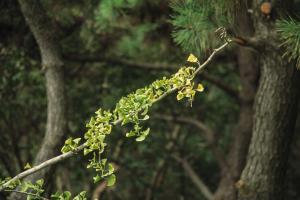Do Aphids Eat Tomato Plants?
Aphids are tiny, sap-sucking insects that can inflict significant damage to tomato plants. These pests attack young leaves, stems, and buds, reducing plant vigor, stunting growth, and causing leaf curling and distortion. But the question remains: do aphids really feed on tomato plants?
The Answer
The short answer is yes. Aphids are notorious for their indiscriminate feeding habits and their ability to infest a wide range of plants, including tomatoes. These insects use their needle-like mouthparts to pierce the plant's skin and suck the sap, which contains essential nutrients and water. As a result, the tomato plant becomes weakened and vulnerable to other pests and diseases.
The Signs of Aphid Infestation
If you suspect that your tomato plants are under attack by aphids, there are some telltale signs to look out for. These include:
Stunted growth and reduced yield
Leaf curling and yellowing
Presence of sticky honeydew, which is a byproduct of aphid feeding
Black sooty mold growing on the honeydew
Pale, mottled leaves that appear deformed or distorted
How to Control Aphids
Controlling aphids can be challenging, but there are several ways to get rid of them without resorting to harmful chemicals. Here are some of the best methods:
Introduce natural predators, such as ladybugs, lacewings, and parasitic wasps, which feed on aphids and their eggs.
Use insecticidal soap or neem oil, which work by suffocating the aphids and disrupting their life cycle. Apply the solution on the affected plants, making sure to cover both the tops and bottoms of the leaves.
Spray the plants with a strong jet of water to dislodge the aphids and knock them off the plant.
Prevention is also key to keeping aphids at bay. You can do this by:
Planting your tomatoes in an area with good air circulation and sunlight, as aphids prefer shady and humid conditions.
Removing any weeds or grasses around the tomato plants, as they can serve as a breeding ground for aphids.
Covering your plants with row covers or screening to prevent aphids from landing and feeding on them.
Fertilizing and watering your plants properly to promote their overall health and resilience.
Conclusion
In summary, aphids are a common pest that can cause significant damage to tomato plants by feeding on their sap and compromising their growth and yield. But with the right methods of control and prevention, you can keep these pesky insects at bay and enjoy a bountiful tomato harvest.

 how many times do yo...
how many times do yo... how many planted tre...
how many planted tre... how many pine trees ...
how many pine trees ... how many pecan trees...
how many pecan trees... how many plants comp...
how many plants comp... how many plants can ...
how many plants can ... how many plants and ...
how many plants and ... how many pepper plan...
how many pepper plan...

































